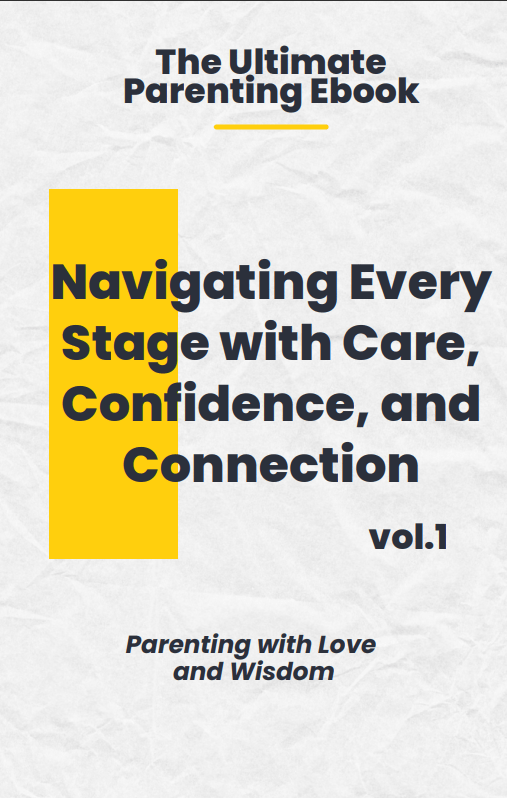
Table of Contents
Toggle
Introduction
In the vast landscape of human connections, few bonds hold as much weight and significance as the father-son relationship in adulthood. It’s a dynamic that embodies a multitude of emotions, from pride and admiration to moments of challenge and growth. Picture this: a father and son, navigating the complexities of life side by side, drawing from their shared history and experiences to chart their course forward. This relationship isn’t just about biological ties; it’s about the evolution of roles, the passing down of wisdom, and the mutual support that transcends generations. As we delve into the depths of father-son relationships in adulthood, it becomes evident that these connections are woven intricately with threads of the past. Every shared memory, every triumph, and even every stumble shapes the trajectory of their relationship, influencing how they communicate, understand, and support each other. It’s within this realm of shared experiences that the true essence of father-son relationships in adulthood comes to life, offering a rich tapestry of growth, understanding, and unwavering support.
1. Understanding the Foundations of Father-Son Relationships in Adulthood
A. Exploring the Early Years: How Childhood Experiences Lay the Groundwork for Adult Relationships
As parents, our influence on our children begins from the moment they enter this world. Think back to those tender years when your son was just a curious toddler, eager to explore the world around him. Every interaction, every bedtime story, every moment of comfort—these are the building blocks that lay the foundation for the father-son relationship in adulthood.
- Quality Time: Spending quality time with your child during their formative years sets the stage for a strong bond later in life.
- Open Communication: Encouraging open communication fosters trust and understanding between you and your son, which carries over into adulthood.
- Positive Reinforcement: Providing positive reinforcement and praise helps shape your son’s self-esteem and confidence, paving the way for a healthy relationship in the future.
B. The Influence of Parenting Styles on Father-Son Dynamics in Adulthood
Our parenting styles shape not only our children’s behaviors but also the dynamics of our relationships with them as they grow into adults. The way we discipline, nurture, and guide our sons during their adolescent years can significantly impact the father-son relationship in adulthood.
- Authoritative vs. Authoritarian: An authoritative approach, characterized by warmth and support coupled with clear boundaries, often leads to a more positive father-son dynamic in adulthood compared to an authoritarian style, which may foster resentment and rebellion.
- Permissive Parenting: While being overly permissive may seem easier in the short term, it can lead to a lack of respect and boundaries in the father-son relationship later on.
- Consistency is Key: Consistency in parenting helps instill a sense of security and predictability in adolescents, laying the groundwork for a stable relationship in adulthood.
C. Relevance of Past Experiences in Father-Son Relationships in Adulthood
The experiences we share with our sons during their formative years leave an indelible mark on the father-son relationship. Whether it’s bonding over a shared love for sports, navigating through challenges together, or celebrating milestones, these experiences serve as the bedrock of our connection in adulthood.
- Shared Memories: Reflecting on cherished memories from your son’s adolescence can reignite feelings of closeness and nostalgia, strengthening your bond in adulthood.
- Learning from Past Mistakes: Acknowledging and learning from past mistakes in your relationship with your son during his teenage years can lead to deeper understanding and growth in adulthood.
- Forging New Paths: While past experiences undoubtedly influence the father-son relationship, it’s essential to recognize that adulthood brings new opportunities for growth and connection, independent of the past.
2. Navigating Through Shared Memories in Father-Son Relationships in Adulthood
A. Reflecting on Fond Memories: How Shared Experiences Cement Father-Son Bonds
Remember those precious moments you shared with your son during his younger years? Whether it was teaching him how to ride a bike or attending his first baseball game, these shared experiences create lasting bonds that carry over into adulthood. Reflecting on these fond memories not only strengthens your connection but also serves as a reminder of the love and joy you’ve shared as a parent and child
- Creating Traditions: Establishing traditions and routines during your son’s adolescence provides a sense of continuity and stability, fostering a deeper bond as he grows into adulthood.
- Quality Time Together: Carving out dedicated time to spend with your adult son allows for opportunities to reminisce about past experiences and create new memories together.
- Shared Hobbies and Interests: Pursuing shared hobbies or interests reinforces the bond between you and your son, providing common ground for meaningful interactions.
B. Overcoming Challenges: Addressing Past Conflicts to Foster Better Communication
It’s natural for conflicts to arise between parents and their adult children, but addressing these challenges head-on is crucial for maintaining a healthy relationship. Whether it’s unresolved issues from the past or disagreements about life choices, open communication is key to fostering understanding and reconciliation.
- Active Listening: Take the time to listen to your son’s perspective without judgment, allowing him to express his feelings and concerns openly.
- Seeking Common Ground: Look for areas of agreement and compromise, focusing on finding solutions rather than dwelling on past conflicts.
- Apologizing and Forgiving: Acknowledge your own role in past conflicts and offer sincere apologies when necessary. Likewise, be willing to forgive and move forward, allowing your relationship to grow stronger through adversity.
C. Shared Memories and Their Impact on Father-Son Relationship in Adulthood
The memories we share with our adult children serve as a bridge that connects past experiences with present-day relationships. Whether it’s reminiscing about family vacations or sharing stories from their childhood, these shared memories create a sense of intimacy and closeness that transcends time.
- Bonding Over Shared Experiences: Sharing memories from your son’s adolescence strengthens your bond and provides opportunities for meaningful conversations and connections.
- Building Trust and Understanding: Reflecting on past experiences allows for deeper insight into each other’s perspectives and emotions, fostering trust and understanding in your relationship.
- Creating a Legacy: By passing down cherished memories and traditions to the next generation, you’re creating a legacy that will endure for years to come, shaping the father-son relationship for future generations.
As you navigate through shared memories with your adult son, remember the importance of embracing both the joys and challenges of parenthood your adults, and cherish the unique bond you share.
3. Healing Wounds: Addressing Past Hurts in Father-Son Relationships in Adulthood
A. The Importance of Forgiveness: Letting Go of Resentment to Forge Stronger Connections
Forgiveness is a powerful tool that can mend even the deepest of wounds in father-son relationships. Holding onto resentment only serves to strain the bond between you and your adult child. By choosing to forgive past transgressions, you not only release yourself from the burden of bitterness but also pave the way for a stronger and more resilient connection with your son.
- Release Resentment: Let go of negative emotions and resentments that may be holding you back from fully embracing your relationship with your adult son.
- Embrace Empathy: Put yourself in your son’s shoes and try to understand his perspective, fostering empathy and compassion in your interactions.
- Focus on the Present: Instead of dwelling on past hurts, focus on building a positive and supportive relationship with your son in the present.
B. Communication as a Healing Tool: Opening Up About Past Traumas to Move Forward
Effective communication is essential for addressing past traumas and healing emotional wounds in father-son relationships. By openly discussing difficult topics and expressing your feelings in a constructive manner, you create a safe space for healing and reconciliation with your adult child.
- Create a Safe Environment: Foster open and honest communication by creating a safe and judgment-free space for sharing thoughts and feelings.
- Listen Actively: Practice active listening and validate your son’s emotions, showing empathy and understanding.
- Seek Professional Help if Needed: Don’t hesitate to seek the guidance of a therapist or counselor to facilitate productive communication and healing in your relationship.
C. Healing Past Wounds in Father-Son Relationships in Adulthood
Healing past wounds in father-son relationships is essential for fostering a healthy and thriving connection in adulthood. By acknowledging past hurts, practicing forgiveness, and engaging in open communication, you can lay the foundation for a stronger and more resilient bond with your adult son
- Embrace Vulnerability: Be willing to be vulnerable and open with your son about your own struggles and insecurities, fostering deeper understanding and empathy.
- Focus on Growth: View past challenges as opportunities for growth and learning, rather than obstacles to overcome.
- Celebrate Progress: Celebrate the progress you’ve made in healing past wounds and building a stronger relationship with your adult son, recognizing the value of your ongoing efforts in parenting teens and tweens.
4. Embracing Growth and Change in Father-Son Relationships in Adulthood
A. Embracing Evolving Roles: Transitioning from Parenting to Peer Relationships
As our children grow into adults, our roles as parents naturally evolve. It’s time to shift from the traditional parent-child dynamic to one of equals, where we can engage with our sons as peers. This transition allows for a deeper level of mutual respect and understanding, fostering a more meaningful and fulfilling father-son relationship in adulthood.
- Mutual Respect: Treat your adult son as an equal, acknowledging his autonomy and independence.
- Shared Decision-Making: Involve your son in family decisions and discussions, valuing his input and perspective.
- Open Communication: Foster open and honest communication, creating a foundation of trust and mutual respect.
B. Supporting Each Other Through Life Transitions: From Career Changes to Parenthood
Life is full of transitions, and navigating them together can strengthen the bond between fathers and sons. Whether it’s supporting each other through career changes, celebrating milestones, or embracing the joys and challenges of parenthood, being there for one another during life’s ups and downs is essential for nurturing a healthy father-son relationship in adulthood
- Celebrating Milestones: From graduations to promotions, celebrate your son’s achievements and milestones, showing your pride and support.
- Navigating Challenges: Offer guidance and support during challenging times, providing a listening ear and a shoulder to lean on.
- Embracing Parenthood Together: Whether you’re a new parent or a seasoned pro, sharing the joys and challenges of parenthood with your adult son can strengthen your bond and deepen your connection.
C. Growth and Change in Father-Son Relationship in Adulthood
Embracing growth and change is essential for fostering a thriving father-son relationship in adulthood. As both you and your son continue to evolve and grow, it’s important to embrace these changes with openness and flexibility, recognizing the value they bring to your relationship
- Adapting to Change: Embrace change as an opportunity for growth and learning, rather than something to be feared or resisted.
- Continuing to Learn: Be open to learning from each other, recognizing that both fathers and sons have valuable insights and perspectives to offer.
- Staying Connected: Make an effort to stay connected and involved in each other’s lives, even as you navigate the challenges of dealing with teenagers and teens. By embracing growth and change together, you can build a stronger and more resilient relationship with your adult son.
5. Building a Future Together in Father-Son Relationships in Adulthood
A. Setting Goals and Aspirations: How Father-Son Bonds Shape Future Ambitions
As fathers, we play a pivotal role in shaping the dreams and aspirations of our sons, even as they transition into adulthood. By setting goals together and nurturing their passions, we can help guide them toward a future filled with purpose and fulfillment
- Encourage Exploration: Support your son in exploring his interests and passions, whether it’s through further education, career pursuits, or personal hobbies.
- Set Realistic Goals: Work together to set achievable goals and milestones, providing guidance and encouragement along the way.
- Foster Independence: Empower your son to take ownership of his future, while still offering guidance and support as needed.
B. Passing Down Wisdom: The Role of Fathers in Mentoring Their Adult Sons
As our sons grow into adults, our role as mentors becomes increasingly important. By sharing our experiences, values, and life lessons, we can help prepare them for the challenges and opportunities that lie ahead.
- Lead by Example: Demonstrate integrity, resilience, and compassion in your own actions, serving as a positive role model for your son to emulate.
- Offer Guidance: Be there to offer guidance and advice when needed, drawing from your own experiences to provide valuable insights.
- Encourage Critical Thinking: Foster your son’s ability to think critically and make informed decisions, empowering him to navigate life’s complexities with confidence.
C. Building Future Together in Father-Son Relationship in Adulthood
Building a future together with our adult sons is a collaborative effort that requires patience, understanding, and love. By actively parenting teens and embracing the principles of love and logic, we can forge a bond that withstands the test of time and grows stronger with each passing day.
- Active Parenting of Teens: Stay actively involved in your son’s life, offering guidance, support, and encouragement as he navigates the challenges of adolescence.
- Embrace Love and Logic: Apply the principles of love and logic in your interactions with your son, promoting mutual respect, responsibility, and problem-solving skills.
- Nurture Unconditional Love: Above all, nurture an environment of unconditional love and acceptance, where your son feels valued, supported, and cherished as he embarks on his journey into adulthood.
Conclusion
In wrapping up our exploration of father-son relationships in adulthood, it’s clear that the past experiences we share with our sons have a profound impact on the dynamics of our relationship. From the early years of childhood to the challenges of adolescence, every moment shapes the bond we share with our adult children. Reflection, communication, and forgiveness emerge as essential tools for nurturing positive connections and fostering understanding. As parents navigating the complexities of parenting young adults and today’s teens, let’s take this opportunity to reflect on our own father-son dynamics, embracing the lessons learned and striving to cultivate relationships built on love, respect, and unwavering support.
You may also interested in : How to Handle Difficult Teenagers in 2024
FAQs
1. How do past experiences influence father-son relationships in adulthood?
Past experiences, including childhood memories and shared moments, play a significant role in shaping the dynamics of father-son relationships in adulthood. These experiences create a foundation of understanding, trust, and shared history that impacts how fathers and sons interact and communicate as adults.
2. What are some common challenges faced in father-son relationships during adulthood?
Common challenges in father-son relationships during adulthood may include differences in values or beliefs, conflicts arising from past experiences, struggles with communication, and navigating changes in roles and responsibilities. Addressing these challenges often requires open and honest communication, empathy, and a willingness to understand each other’s perspectives.
3. How can fathers support their adult sons through life transitions?
Fathers can support their adult sons through life transitions by offering guidance, encouragement, and practical assistance. Whether it’s navigating career changes, starting a family, or facing personal challenges, being a source of emotional support and lending a listening ear can help strengthen the bond between fathers and sons.
4. What role does forgiveness play in father-son relationships in adulthood?
Forgiveness plays a crucial role in father-son relationships in adulthood by allowing both parties to move past past hurts and conflicts. By practicing forgiveness, fathers and sons can foster healing, build trust, and create space for deeper connection and understanding.
5. How can fathers nurture positive connections with their adult sons?
Fathers can nurture positive connections with their adult sons by actively listening, showing empathy and understanding, spending quality time together, and expressing appreciation and support. Building a relationship based on mutual respect, love, and communication can help strengthen the bond between fathers and sons in adulthood.





3 Responses
An excellent read that will keep readers – particularly me – coming back for more! Thank you and best of luck!
An interesting topic and I’m glad to come across your page where I found some helpful insights.